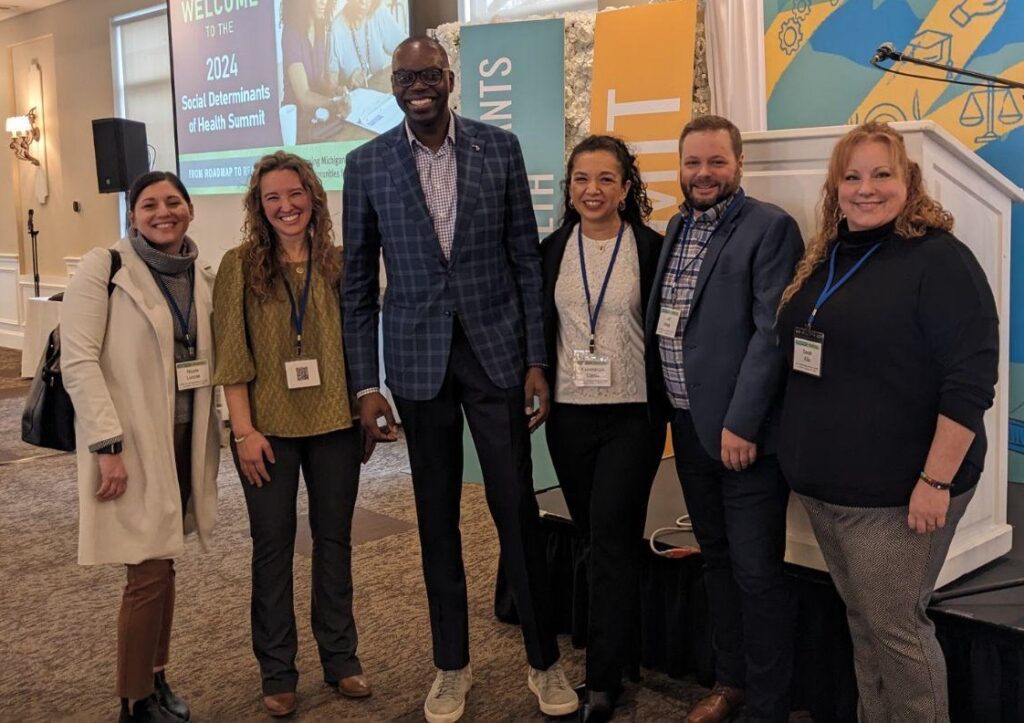Esperanza Cantú, Senior Director of CIE & Integration Services
Published on October 4, 2024
Esperanza Cantú is the senior director of Community Information Exchange (CIE) & Integration Services at United Way for Southeastern Michigan, where she harnesses local strengths to build an integrated network of partners that improves access to care and people’s overall quality of life.
For six years, Esperanza served on the Hispanic and Latino Commission of Michigan to advise the state on the priorities of the Hispanic and Latino population. She is a Global Atlantic Fellow for Health Equity through the Atlantic Institute and George Washington University and has completed the Healthy Places by Design Collaboration Lab and other fellowships through the Detroit Equity Action Lab and Authority Health.
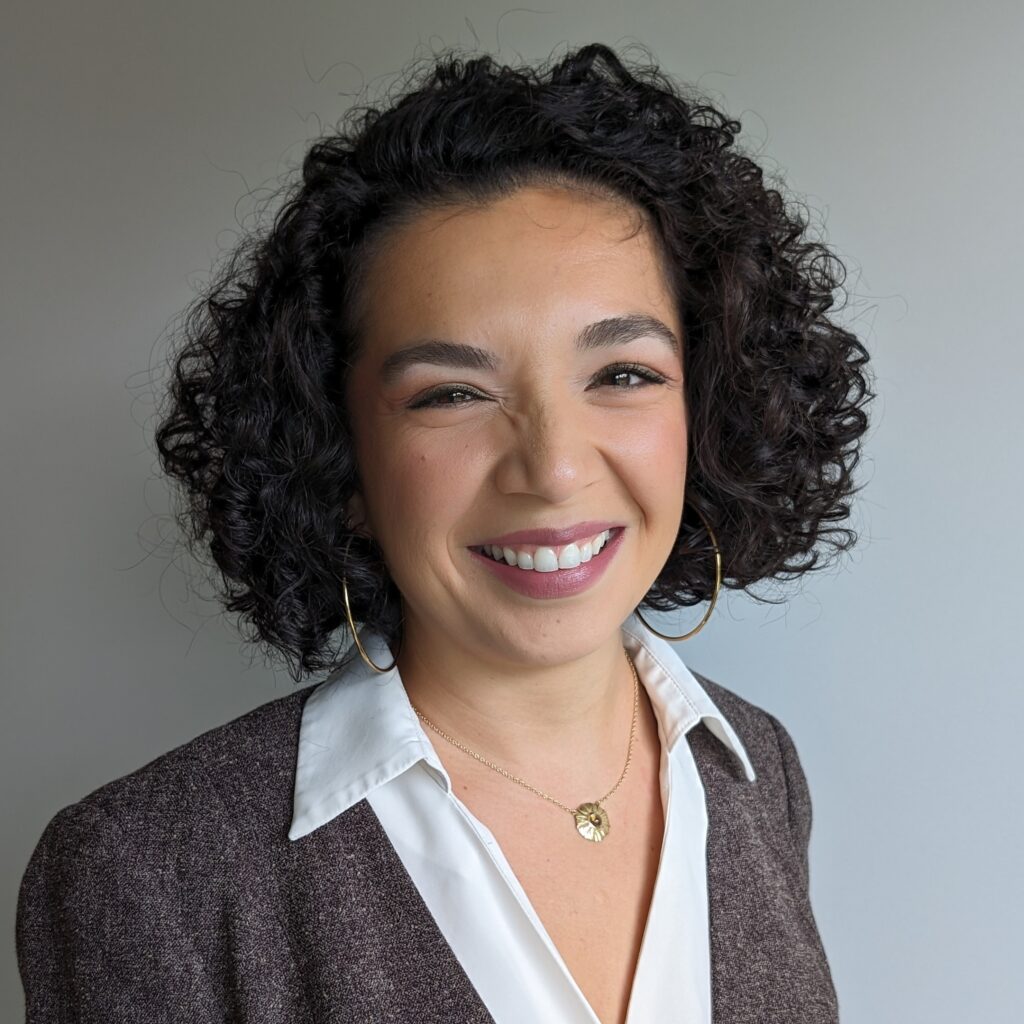
Tell me more about yourself and what brought you to this work?
I grew up on the southern border of Texas and Mexico. Both of my parents are Mexican-American and very involved in our extended family and the community. Our community struggled with teen pregnancies and dropouts; we had some of the highest incidence of this across the entire state. My mom taught at our high school and wanted to help, so she and her colleagues started a program educating young, expectant parents about life with children, connecting them and their families with resources, and helping them stay enrolled in school. My dad was often the first family member called when someone needed help with their vehicle or other household issue. On top of that, we grew up involved in the Catholic church and my dad was always volunteering and getting us involved.
Wow, both your parents were trailblazers in community action! Do you remember anything being instrumental in your passion for public health?
We were a tight-nit family. My mom was the youngest of eight kids. She cared for my grandparents, who struggled with diabetes and Alzheimer’s, because she loved them and we couldn’t afford around-the-clock care at their home. At the same time, I saw my parents, Tías, and Tíos care for other family that struggled with preventive health conditions that ultimately ended their lives too soon. I learned later that many of them also struggled with mental health conditions like depression and substance abuse. There’s nothing more they could have done at those times, but if my family had received coordinated support from local government and organizations, they wouldn’t have struggled the way they did. They could still be alive.
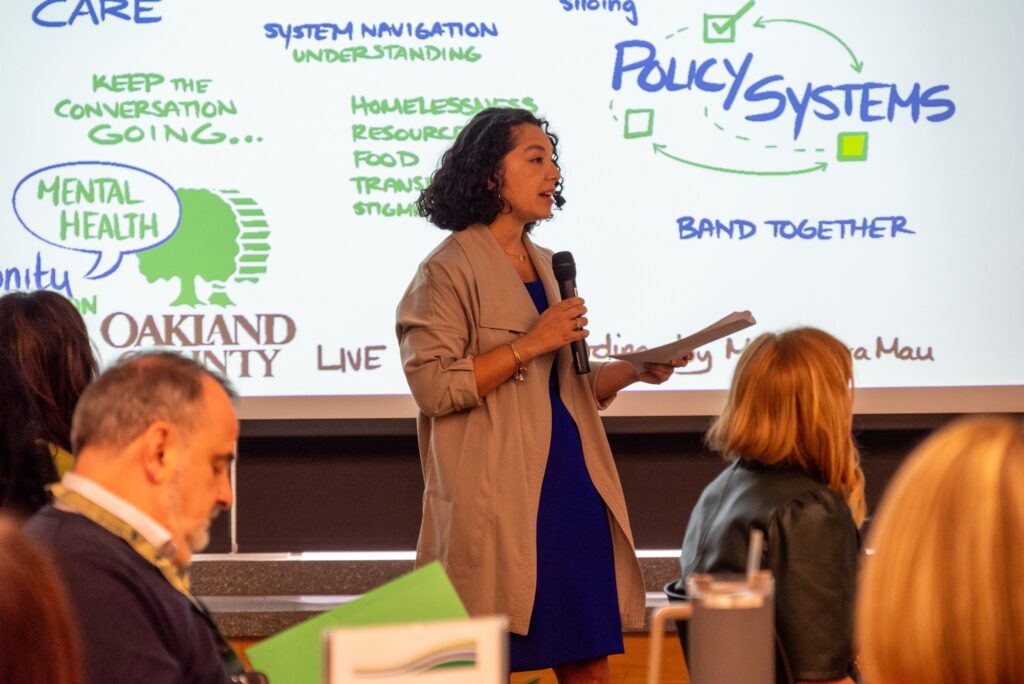
So sorry for your loss and your family’s suffering. It sounds like your parents had a lot to balance.
Yes, they did. They have worked hard their whole lives, and we were fortunate to have our upbringing. However, I also saw them make trade-offs constantly, such as prioritizing others’ healthcare over their own. In public health, we know that preventive healthcare is critical to help us stay healthy and independent as we age. The trade-offs my parents and other family made are not equitable, and they do not exist in a fair or just way for many people. Looking back on all this, it makes sense why I went into work that promotes community well-being and public health.
We definitely make trade-offs daily. What factors do you see influencing those trade-offs?
There were all sorts of barriers to healthcare in the very poor, rural area where I grew up, such as lack of access to safe housing, food, employment, and transportation, and mistrust and mistreatment by the medical field. All these factors were impacted by people’s household budgets and their ability to afford common needs, as well as policy decisions about resource allocation in the borderlands and my Mexican-American community. I grew up with constant examples of how unjust resource distribution impacts how much people are supported when they need help with food, housing, healthcare, and more. Those factors impact people’s ability to take care of themselves and their families, plan for their futures, and lead long healthy lives. That’s why I feel strongly about the work at United Way in the Community Information Exchange. There’s a lot of personal intersections there for me.
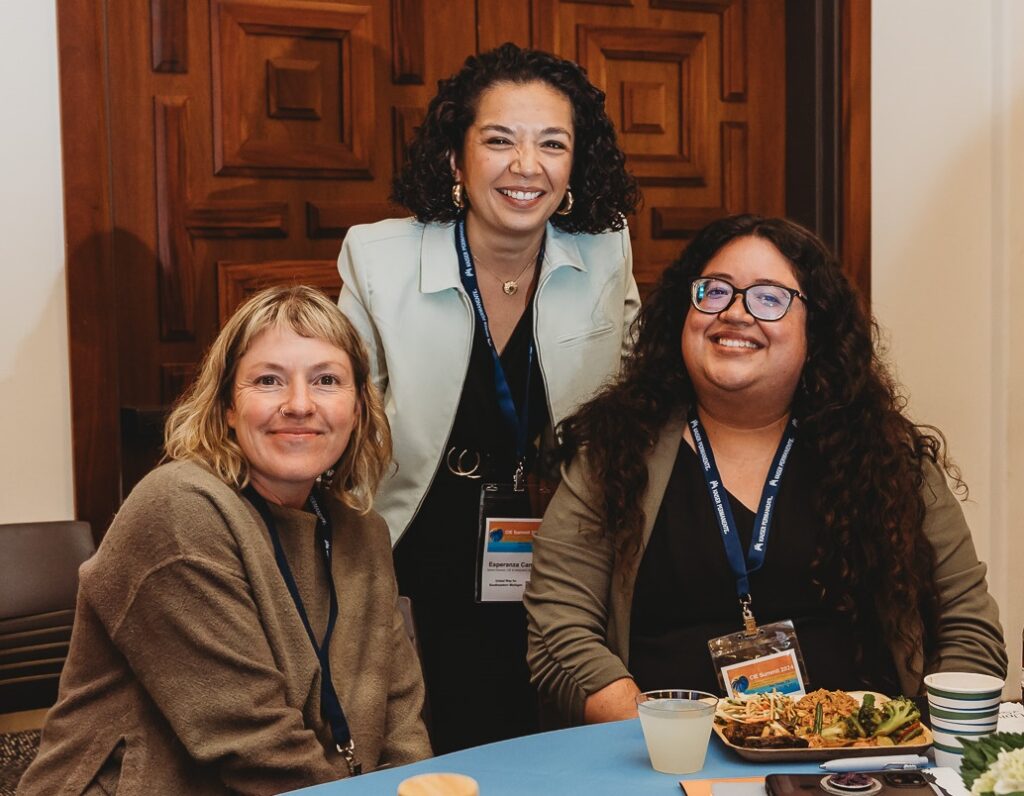
It’s amazing you are so connected to your work! Tell us more about the value of CIE.
We must work in partnership with community organizations to help promote healthy communities. The added value of Community Information Exchange is that organizations can collaborate to support people the way they need it and connect people to services. For all this to happen you need critical service organizations that people trust at the family picnic. You need technology to securely share information about clients and community resources between organizations. When examined at a high level, this information sharing allows different parts of a community to understand the needs of individuals and the community, strengthening our ability to act in a transformative way.
How is United Way an ideal place for CIE?
The unique value proposition that United Way has, is that we have been doing this work for over 100 years. We bring partners and people together to serve families who fall under the Asset-Limited, Income-Constrained, Employed (ALICE) threshold. We leverage our assets, such as 211 and client services, grant-making, and partnerships to promote the community we want to leave behind. We have some of the most passionate people working for our organization as well as those volunteering and advocating for our community. We all have our own experiences and stories that have brought us together to address the needs of ALICE households, like my motivation for public health. We are all motivated, capable, and responsible. United Way brings us together in a meaningful way for our community.
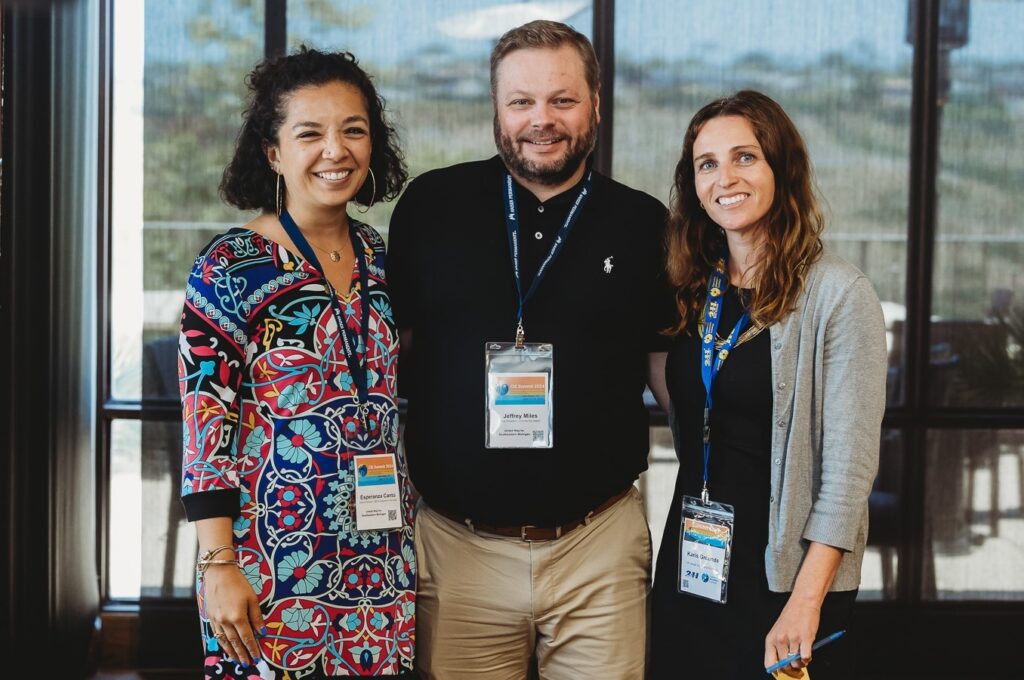
What do you see going forward with public health and community partnership?
When I started at United Way, I met with our CEO and told her, “The public health field has been trying to move upstream for decades.” There’s an effort to understand and act upon factors outside hospital or clinic walls such as food, housing, education, and employment that can improve people’s health and wellbeing.
I told her, “United Way is a gold mine for addressing the social determinants of health and people’s health-related social needs.” For example, we know people’s education impacts their health and well-being. It impacts what kind of jobs people can get, their household income, the health insurance they can access, and health outcomes related to mental health and chronic disease. Today, United Way plays a critical role advocating for greater resource allocation for our community partners working to address disparities in food, housing, education, and healthcare, and promoting wraparound connections and support to people accessing these services. Through 2-1-1, we are often the first call people make when they find themselves in a crisis. We will continue to support work and partnerships that help individuals and families move from crisis to stability and from stability to prosperity.

When did you become aware of these vast disparities in healthcare?
When I got to college, I didn’t know about health disparities and systemic racism in healthcare. But once I learned, I couldn’t turn away from it. I was studying disparities in pancreatic cancer and gastrointestinal diseases, and it dawned on me that decisions you don’t even have the power to make can impact how long you live. If people can’t afford to purchase produce, if they can’t go to doctor appointments, and don’t have access to other supportive services, it’s not because people aren’t trying or working hard. It’s because of current and historic discrimination that impacts living conditions and factors all around us.
It’s so important people have access to those resources. How is this affecting our ALICE households?
All the same disparities that impact people’s health and well-being are also impacting ALICE households. It’s not just about going to the doctor, but it’s also, ‘Can I afford to pay for all of my food this month?’ The ALICE report highlights financial disparities between Black and Hispanic and/or Latine households and other racial and ethnic groups. Daily trade-offs in what people can access and afford, it doesn’t just impact people’s wallets and budgets, it affects their health. Additionally, if people don’t have access to healthcare, they miss out on important preventive health measures, impacting their ability to lead long, healthy lives.

Tell us more about how systemic racism creates disparities.
Disparities in Black and Hispanic and/or Latine households stem from intentional, historical events that continue to impact different groups today. Historical factors and events such as colonialism and slavery resulted in exploitation and displacement, limiting Black, Indigenous, and Hispanic and/or Latine communities from being able to acquire land and build wealth over generations. These events also supported economic systems that favor people of European descent, supporting the wealthy and creating significant wealth gaps over time.
Disparities in Black and Hispanic and/or Latine households stem from intentional, historical events that continue to impact different groups today.”
Many people in my Mexican-American community are segmented with lack of access to important resources that can improve our health and quality of life. For example, in my parents’ generation, many people from Spanish-speaking households were physically abused by their White teachers in school. To combat unjust treatment in public schools and other related issues, the Chicano Movement or El Movimiento in the 1960s resulted in student walkouts in many places, including my hometown community. Many of these students, including some of my family members, were suspended or expelled and not allowed to continue their education and receive a high school diploma. Many of these students left school due to the mistreatment being protested. Like I’ve shared already, this lack of access to education impacted their ability to get jobs with an income needed to support their individual and family needs, perpetuating disparities between Hispanic and/or Latine households and other groups. Similar issues have impacted Black, Indigenous, and other communities as well.
Is there anything else you’d like to add?
It takes an entire community working together over time to reduce health disparities and improve access to critical food, housing, health, and education resources. I’m grateful for my amazing team and our community partners, funders, volunteers, and advocates who trust us to steward this work, and look forward to the impact we can make through continued collaboration. Thank you for supporting Hispanic Heritage Month and celebrating the contributions, culture, and history of my community.
It’s very important that we pay attention to the impact of our systems on the ALICE community and communities of color. We appreciate you sharing not just your wisdom in the field of public health and community well-being, but so much of your life with us. Thank you, Esperanza!
